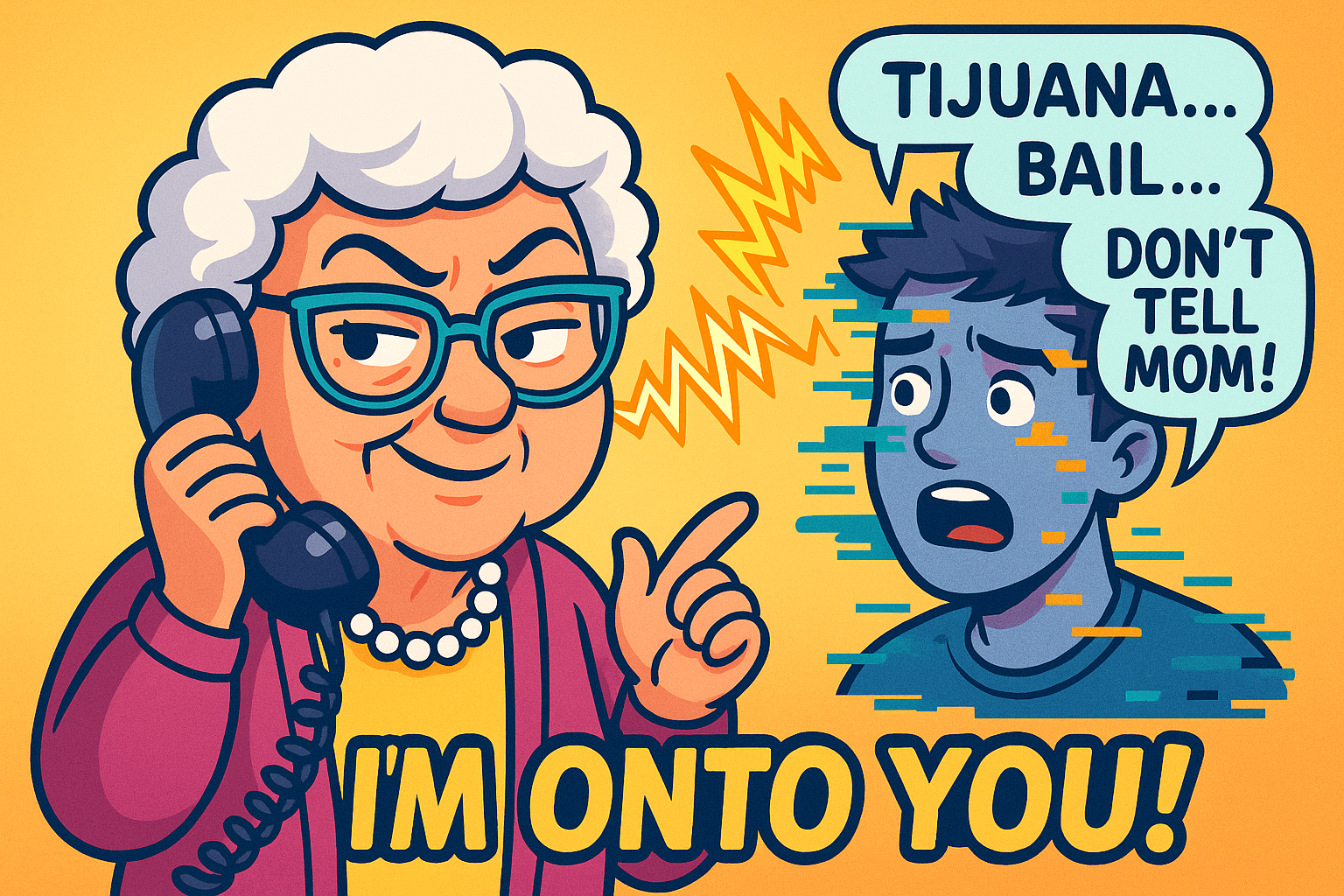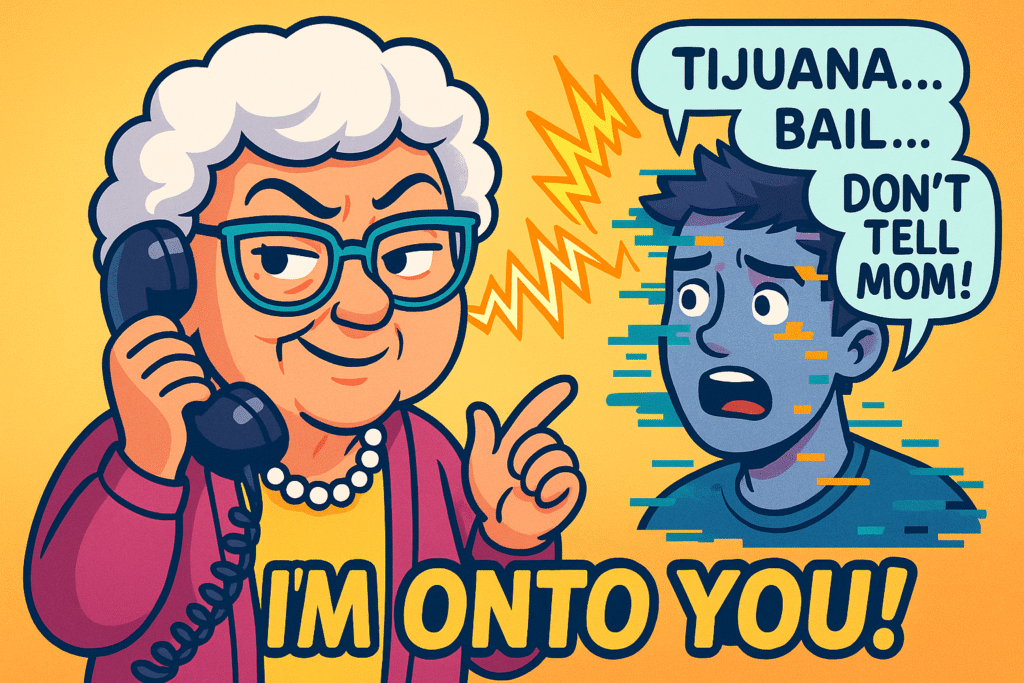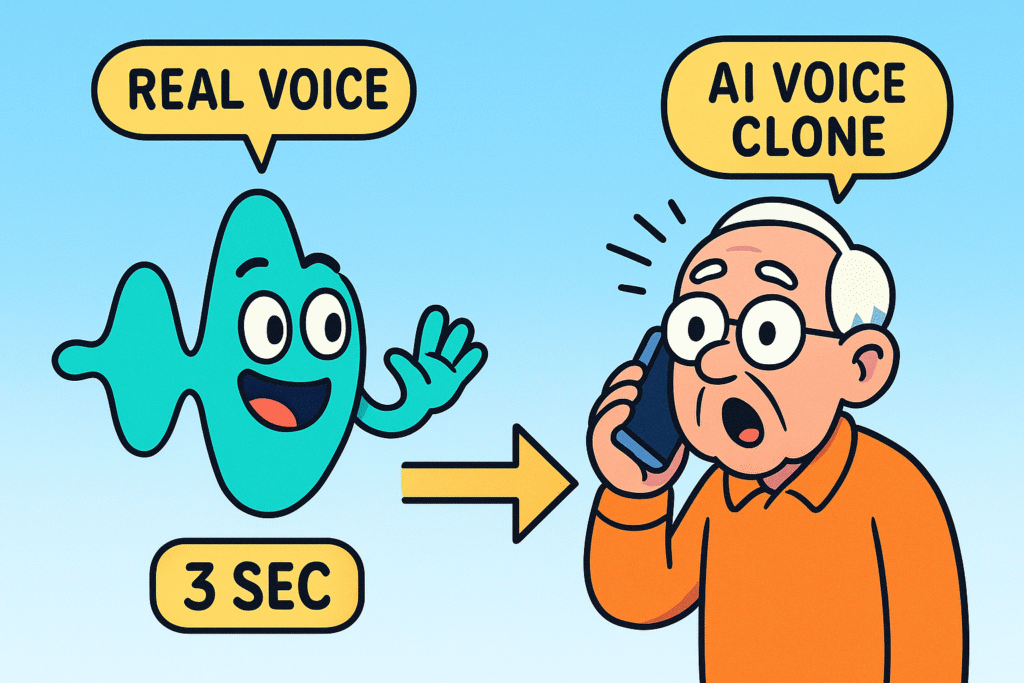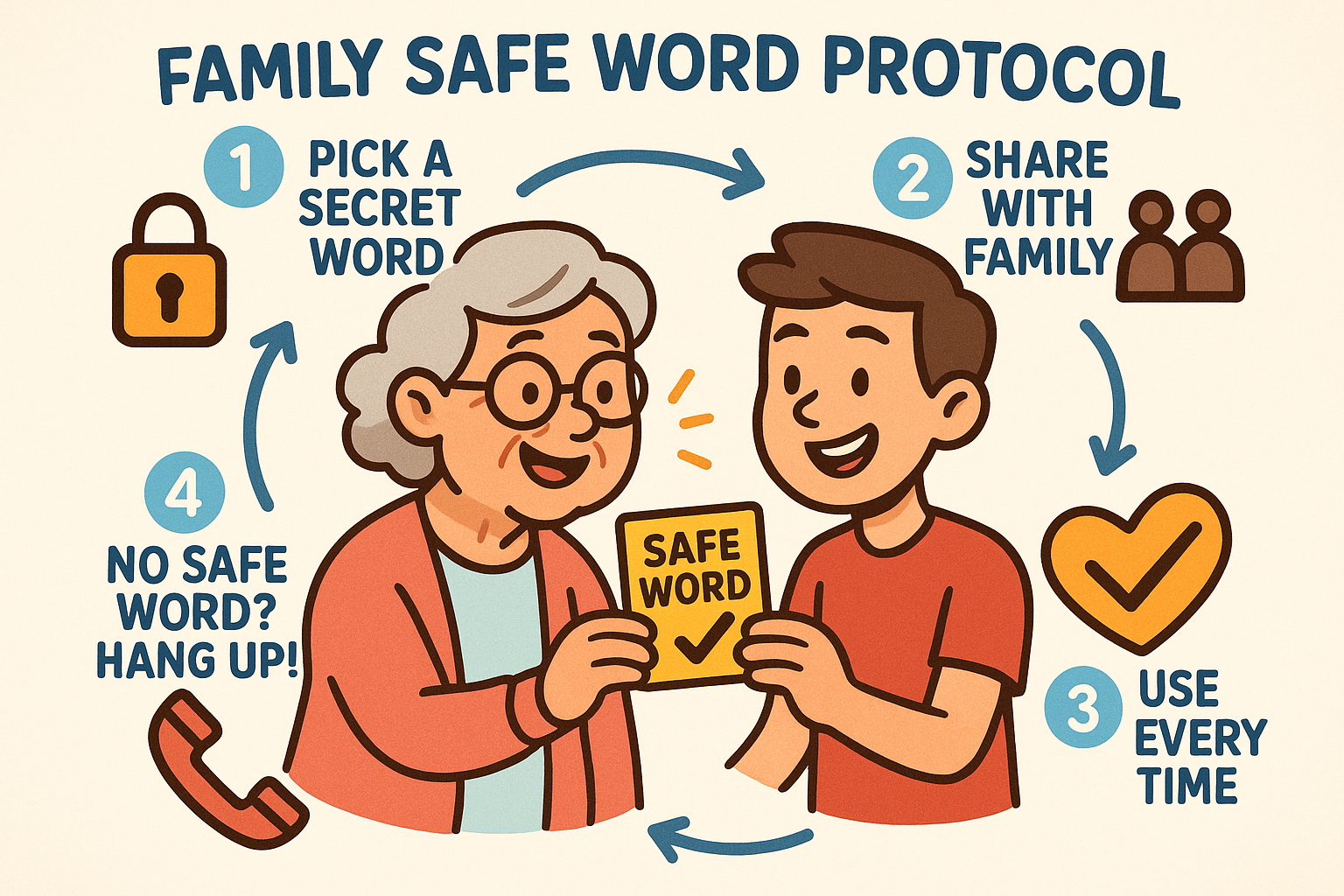
Newsletter Subscribe
Enter your email address below and subscribe to our newsletter

The phone rings, and it’s your grandson, Timmy. At least, it sounds exactly like Timmy, except he sounds like he’s calling from inside a wind tunnel during a national kazoo convention. And he’s in trouble. Big trouble.

“Grandma? I’m in jail in Tijuana,” he whispers urgently. “I got into a little fender bender, and I need you to wire $2,000 for bail. Please don’t tell Mom and Dad, they’ll kill me!”
Your heart plummets to your sensible shoes. Your sweet Timmy, who can’t even parallel park in your driveway, is now an international fugitive.
Before you can ask what he was doing in Tijuana when he’s supposed to be in a sophomore biology class in Ohio, he’s already giving you wiring instructions.
Hold the phone. Literally.
Before you start raiding the emergency fund you’ve been saving for a new set of patio furniture, let’s talk.
Because that might not have been Timmy. Welcome to the bizarre, futuristic world of AI voice scams, the “grandparent scam” supercharged for the 21st century.
Let’s up your AI safety game and learn how to protect you and your loved ones from this common scam.
It used to be that you could trust your own ears. But with today’s technology, a scammer no longer needs to be a master of disguise—they just need a computer and a snippet of a voice.
So, what is this AI voice cloning sorcery? Imagine a super-smart parrot that can perfectly mimic not just a few words, but someone’s entire way of speaking—their pitch, their accent, even the little sigh they do when they’re annoyed.
That’s what Artificial IntelligenceArtificial Intelligence (AI) is basically when computers get smart—really smart. Imagine if your c... More (AI) can do. Scammers can take a tiny sample of a person’s voice, often from a social media video or a public post, and use it to create a convincing fake.
Research shows that it can take as little as three seconds of audio to create a clone that’s good enough to fool a loved one. Three seconds!
That’s shorter than the time it takes to decide which channel to watch. This technology makes the classic “grandparent scam,” which the FBI reports has led to over $13 million in losses, terrifyingly effective.

AI voice scams use as little as 3 seconds of your loved one’s voice to create a convincing fake. Understanding this helps you grasp how easily scammers can impersonate someone you trust.
The Myth: “Oh, I’d know right away if it was a robot. It would sound all choppy and fake, like those automated calls that try to sell you a car warranty.”
The Reality: While some cheap AI fakes might sound a bit off, the sophisticated ones are shockingly realistic. They can cry, sound panicked, and express emotion.
Believing you can spot a fake just by listening is like thinking you can outrun a cheetah because you jog on weekends. It gives you a false sense of security, which is exactly what scammers want.
Since your ears can be fooled, you need to rely on your brain. Scammers follow a predictable script designed to short-circuit your logic and trigger your emotions.
The key is to recognize the script and not play along.
Think of it as your personal S.C.A.M. Alert System.
When you recognize these signs, it’s time to deploy your secret weapon: The Active Pause. This is your mental timeout.
Before you do anything, just stop. Take a deep breath for five seconds. This simple act moves you from your panic-driven emotional brain to your calm, logical thinking brain.

Use The S.C.A.M. Alert System to spot red flags quickly: secrecy, urgent crises, odd payment requests, and when scammers avoid personal questions. Then take The Active Pause—a mental timeout to stay calm and in control.
Once you’ve taken your Active Pause, it’s time to verify. This isn’t rude; it’s smart.
The best defense is a good offense. Instead of just reacting to scams, you can build a fortress of security around your family with one simple, powerful tool.
This is easier than programming a VCR and a hundred times more useful. A safe word is a secret word or phrase that only your immediate family knows. It should be something unique that a scammer could never guess.
Not “passwordA password is a string of characters used to verify the identity of a user during the authentication... More.” Not “1234.” Think of an inside joke or a funny memory. Maybe it’s “Waffles,” the name of the hamster you had in 1978. Or “Leaky Faucet,” in honor of that one disastrous family vacation.
Here’s how to use it:
If the person on the other end doesn’t know the word, gets confused, or tries to brush it off, you know it’s a scam. Hang up immediately.

The Family Safe Word Protocol is your ultimate defense: create a secret word known only to family, always verify it on calls, and if the word’s missing, hang up immediately.
It’s also wise to be mindful of your digital voice. Scammers often find voice clips on public social mediaSocial media refers to online platforms and websites that enable users to create, share, and interac... More profiles. Encouraging your family to set their accounts to private is a great step toward stronger online safety.
Scammers know that the bond between a grandparent and a grandchild is incredibly strong. They exploit that love and your protective instincts to create a sense of panic that overrides your natural skepticism.
You can trust your ears, but you should always back them up with your brain. The technology is simply becoming too good to rely on hearing alone. Think of it as getting a second opinion for a serious diagnosis—it’s just the smart thing to do.
Anywhere it’s public. A video on Facebook, a story on Instagram, a clip on TikTok. Many people share moments of their lives online, and it only takes a few seconds of audio for a scammer to grab what they need.
Don’t panic. Try another trusted family member or even a close family friend. Wait a few minutes and try again. A real emergency will still be an emergency in 15 minutes. A scammer’s sense of urgency, however, will fade the moment you hang up on them.
The world of technology can feel like it’s changing at the speed of light, but the fundamentals of staying safe remain the same. These scams are designed to make you feel panicked, isolated, and helpless.
Don’t let them. Remember the key takeaways:
By sharing this information with your friends and family, you help build a community of smart, savvy seniors who are ready for anything. The next time you get a frantic call from “Timmy,” you’ll be prepared. And you can save that emergency fund for what really matters—a beautiful new set of patio furniture.